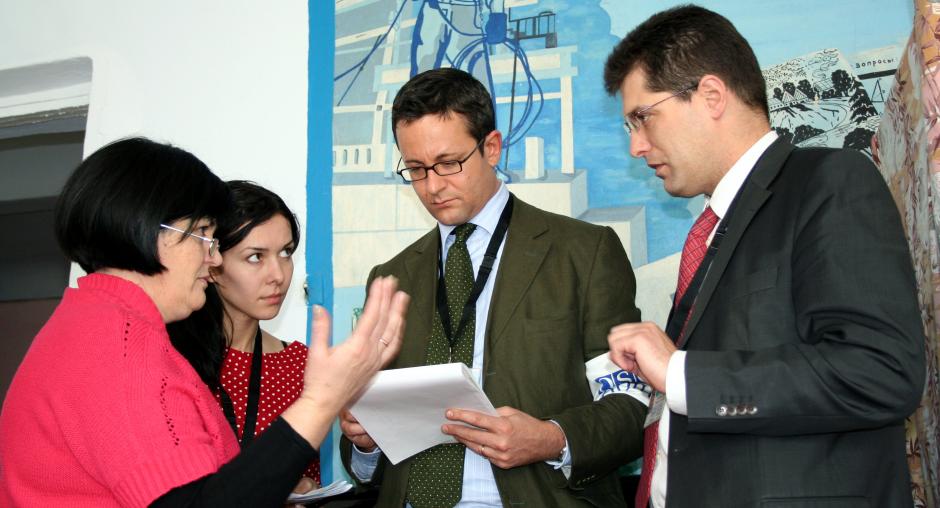Parliamentary Elections, 5 April 2009

Type:
Country:
Mission at a glance
- Head of Mission: Nikolai Vulchanov of Bulgaria
- Core team of 13 experts based in Chisinau
- 24 long-term observers deployed throughout the country
- 200 short-term observers requested from OSCE participating States
Mission schedule
- 24 February: Mission opens
- 2 March: Briefing of long-term observers
- 3 March: Deployment of long-term observers
- 2 April: Briefing of short-term observers
- 4 April: Familiarization with areas of responsibility
- 5 April: Election day
- 6 April: Press conference on preliminary findings and conclusions
Following an invitation from Moldova's Central Election Commission, ODIHR deployed an election observation mission 26 February 2009 to observe the parliamentary elections on 5 April.
Led by Nikolai Vulchanov of Bulgaria, the mission included a 13-member core team based in Chisinau and 24 long-term observers deployed to 11 regional centres throughout the country.
For observation of election day, the mission joined efforts with the OSCE Parliamentary Assembly, the Parliamentary Assembly of the Council of Europe, and the European Parliament. Together, they deployed some 400 short-term observers from 43 OSCE participating States.
According to the mission's final report: "The 5 April 2009 parliamentary elections took place in an overall pluralistic environment and offered voters distinct political alternatives. In its Statement of Preliminary Findings and Conclusions, issued on the day after the election, the [mission] noted that while many of the OSCE and Council of Europe commitments were met, further improvements were required to ensure an electoral process free from undue administrative interference and to increase public confidence.
"The post-electoral period was overshadowed by violent demonstrations and a lack of public trust in the electoral process. The observation of post-election day developments revealed further shortcomings that challenged some OSCE commitments, in particular the disregard for due process in adjudicating complaints of alleged irregularities and deficiencies in the compilation of voter lists lodged by opposition political parties."
Long-term observation
ODIHR conducted a needs assessment mission (NAM) from 20 to 22 January 2009 in order to assess conditions and preparations for the elections and to advise on the level of ODIHR involvement in the forthcoming elections. The NAM recommended that a standard election observation mission be deployed.
The EOM, headed by Nikolai Vulchanov of Bulgaria, consists of 13 international staff based in Chisinau and drawn from 11 OSCE participating States. Twenty long-term observers are expected to arrive by 1 March and to be deployed throughout the country on 3 March.
The mission will assess this election for its compliance with the principles governing democratic electoral processes (including commitments agreed to by all the OSCE participating States), as well as with national legislation. Observers will closely monitor campaign activities, media coverage, the legislative framework and its implementation, the media situation, the work of the election administration and relevant government bodies, and the resolution of election disputes.
Election day
ODIHR requested 200 short-term observers, to be deployed immediately prior to the 5 April elections. The short-term observers will be deployed throughout the country in multinational teams of two to monitor the opening of polling stations, the voting, the counting of ballots, and the tabulation of results.
The day after the elections, the mission will issue a statement of its preliminary findings and conclusions. A final report on the observation of the entire electoral process will be issued approximately eight weeks after the end of the observation mission.
Previous elections
ODIHR has observed a number of electoral events in Moldova, including the presidential election in 1996, parliamentary elections in 1998, 2001 and 2005, and local elections in 2003 and 2007.
